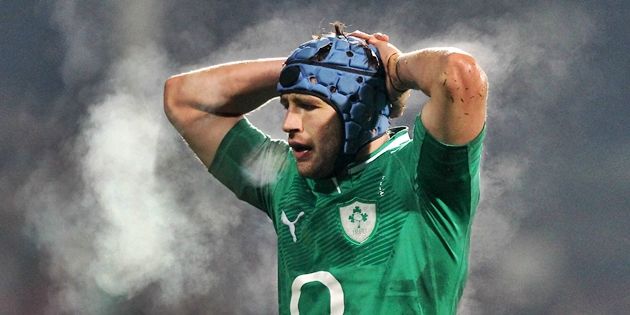“You’re thinking, ‘I get one injury, they’ve got me now’.”
Today, in Belfast and in Limerick, players will line out for their provinces for the final time.
Some are moving on to pastures new – reluctantly or gleefully – others are hanging up their boots. Some are still scrambling for a club next season.
Most rugby players in Ireland are on either one or two year deals. Only the most valued internationals can demand a three-year deal and, even still, not every one gets their way.
Former Ireland internationals Ronan O’Gara and Kevin McLaughlin broke down the contract scene on the latest episode of The Hard Yards [from 17:45 below]. McLaughlin, who retired from Leinster last season, offered a fascinating insight into how the often brutal system works.
McLaughlin recalled how, at 22, he had interviewed for a role with Allied Irish Bank as he genuinely feared for his rugby career. It was only after he came off the bench and performed well that then Leinster coach Michael Cheika made a last minute decision to offer him a two-year deal.
“Sometimes,” O’Gara remarked, “when everything is against you, you’ve got to hang in there. The only person that can fully convince you of doing that is yourself.”
Contract time, McLaughlin argued, is “incredibly stressful” for players and the thought often is that one injury can do untold damage to you at the negotiating table.

“You’re thinking,” said McLaughlin, “that if I get one injury, they’ve got me now… The negotiation can tip their way very easily.”
The three-time European cup winner revealed when players often get their contracts sorted:
“Some players work without agents now but the general way it works is that whoever the manager is or whoever does the negotiations will contact the agent or player and make an offer.
“Where you are in the club, how you’re playing, whether you’re first choice, etcetera, will determine when that happens.
“If you’re someone they really want to keep, that happens in September, October time – the negotiations will start. If you’re someone that kind of second choice but they definitely want to keep you around, talks will begin around November, December.
“If it’s someone who’s a little bit up in the air and might be moving on, then discussions starts in January or February. They’ll close off [contracts] for the really important guys that they want to build the squad around in September, October, November, then they’ll move onto the next batch and then the next batch.”
Rugby Players Ireland have no brought in a contract offer cut-off date but uncertainty can loom for months on end.
If you’re in that third batch, good luck trying to concentrate on your rugby.




























